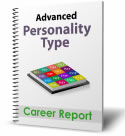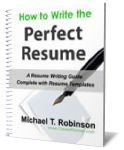"Set and Exhibit Designer"
Job Description - Part 4 - Abilities Needed
Part 1
Duties / Tasks
Part 2
Activities
Part 3
Skills
Part 4
Abilities
Part 5
Knowledge
Abilities Needed for: "Set and Exhibit Designer"
1) Oral Comprehension -- The ability to listen to and understand information and ideas presented through spoken words and sentences.
2) Originality -- The ability to come up with unusual or clever ideas about a given topic or situation, or to develop creative ways to solve a problem.
3) Fluency of Ideas -- The ability to come up with a number of ideas about a topic (the number of ideas is important, not their quality, correctness, or creativity).
4) Speech Recognition -- The ability to identify and understand the speech of another person.
5) Speech Clarity -- The ability to speak clearly so others can understand you.
6) Oral Expression -- The ability to communicate information and ideas in speaking so others will understand.
7) Written Comprehension -- The ability to read and understand information and ideas presented in writing.
8) Visualization -- The ability to imagine how something will look after it is moved around or when its parts are moved or rearranged.
9) Category Flexibility -- The ability to generate or use different sets of rules for combining or grouping things in different ways.
| Thanks for visiting CareerPlanner.com | ||

|
1) Use Career Testing to find the perfect career 2) Is your resume getting you enough interviews? |
 |

|
Thanks for visiting CareerPlanner.com 1) Use Career Testing to find the perfect career 2) Is your resume getting you enough interviews? |
 |
10) Near Vision -- The ability to see details at close range (within a few feet of the observer).
11) Written Expression -- The ability to communicate information and ideas in writing so others will understand.
Is being a "Set and Exhibit Designer" your very best career choice?
Our Career Interest Test will show you which careers match your interests.
Our Free Personality Test will show you which careers match your personality and why.
12) Far Vision -- The ability to see details at a distance.
13) Problem Sensitivity -- The ability to tell when something is wrong or is likely to go wrong. It does not involve solving the problem, only recognizing there is a problem.
14) Deductive Reasoning -- The ability to apply general rules to specific problems to produce answers that make sense.
15) Inductive Reasoning -- The ability to combine pieces of information to form general rules or conclusions (includes finding a relationship among seemingly unrelated events).
16) Information Ordering -- The ability to arrange things or actions in a certain order or pattern according to a specific rule or set of rules (e.g., patterns of numbers, letters, words, pictures, mathematical operations).
17) Number Facility -- The ability to add, subtract, multiply, or divide quickly and correctly.
18) Finger Dexterity -- The ability to make precisely coordinated movements of the fingers of one or both hands to grasp, manipulate, or assemble very small objects.
19) Visual Color Discrimination -- The ability to match or detect differences between colors, including shades of color and brightness.
20) Flexibility of Closure -- The ability to identify or detect a known pattern (a figure, object, word, or sound) that is hidden in other distracting material.
21) Perceptual Speed -- The ability to quickly and accurately compare similarities and differences among sets of letters, numbers, objects, pictures, or patterns. The things to be compared may be presented at the same time or one after the other. This ability also includes comparing a presented object with a remembered object.
22) Manual Dexterity -- The ability to quickly move your hand, your hand together with your arm, or your two hands to grasp, manipulate, or assemble objects.
23) Selective Attention -- The ability to concentrate on a task over a period of time without being distracted.
24) Mathematical Reasoning -- The ability to choose the right mathematical methods or formulas to solve a problem.
Job Description for "Set and Exhibit Designer" continued here...
Part 1
Duties / Tasks
Part 2
Activities
Part 3
Skills
Part 4
Abilities
Part 5
Knowledge
"Set and Exhibit Designer" Holland / RIASEC Career Code: NA SOC: 27-1027.00
Click here for "Set and Exhibit Designer" Jobs
See the Future Outlook and Educational Requirements for "Set and Exhibit Designer"
Our Most Popular Products





